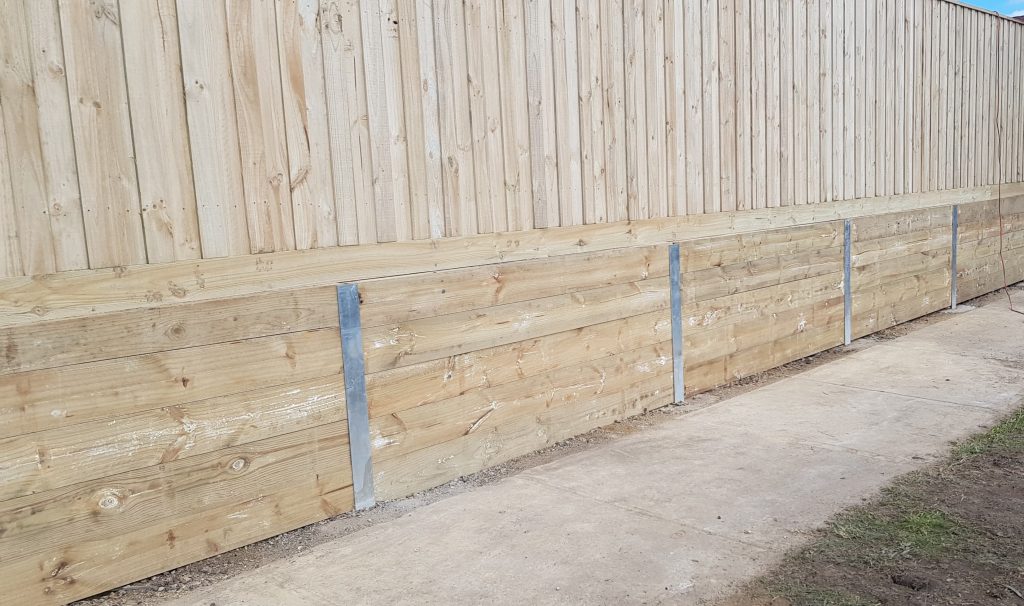Introduction
Choosing the right professional for your retaining wall job is no little feat. With a lot of choices available, how do you understand which contractor will provide the best outcomes? Assessing a professional's portfolio is a critical action in this decision-making process. A robust portfolio not only showcases the specialist's skills and experience but likewise shows their capability to deal with numerous products such as timber sleepers, concrete sleepers, and H beams This article aims to assist you through the complex process of assessing a retaining wall specialist's portfolio.
How to Assess a Retaining Wall Professional's Portfolio
When diving into the evaluation of a retaining wall specialist's portfolio, there are numerous factors to think about. Primarily, you'll wish to assess the diversity of jobs they've finished. Are they experienced in dealing with various kinds of materials? Have they managed comparable tasks to yours?
Understanding Portfolio Diversity
A diverse portfolio is an important indicator of a specialist's flexibility. For example, if you're thinking about using timber sleepers for your project, ensure that the professional has actually effectively performed similar tasks. Try to find evidence in their previous work-- photos, customer reviews, or case studies that highlight their expertise.
Key Products: Timber Sleepers, Concrete Sleepers, and H Beams
Each material used in building maintaining walls provides distinct obstacles:
- Timber Sleepers: These are typically preferred for their visual appeal and flexibility. They can be easily shaped and set up but need proper treatment versus pests. Concrete Sleepers: Known for their durability and strength, concrete sleepers are ideal for durable applications. Make sure the professional has experience with proper setup methods to avoid cracking. H Beams: These steel beams supply robust assistance for heavy loads and are usually used in large-scale projects. Familiarity with H beams signifies a high level of expertise.
Evaluating Job Complexity
Not all retaining wall jobs are produced equal; some might include elaborate designs or tough landscapes. Search for examples in the contractor's portfolio that demonstrate their ability in handling complex scenarios.
Questions to Inquire about Task Complexity
What types of terrain have they worked on? Have they handled any drain issues? Are there examples demonstrating how they have actually incorporated visual appeals into functional design?Assessing Quality Over Quantity
While it may be tempting to select a professional based solely on the variety of projects finished, quality should always take precedence over quantity.
Indicators of Quality Workmanship
Quality workmanship can be evaluated by:
- Attention to detail: Are joints smooth? Exists consistent spacing? Finishing: Look closely at edges and surface areas; they should be smooth without cracks or blemishes. Durability: Inquire about warranties or warranties used on past projects.
Visual Evaluation of Completed Projects
If possible, check out finished projects to see direct how well they have actually held up with time. Consider asking previous clients about their satisfaction levels relating to both aesthetics and functionality.
Client Reviews and Reviews
Nothing speaks louder than pleased customers. A strong portfolio will frequently consist of reviews from previous clients.
Where to Find Customer Feedback
- Company site: Numerous professionals showcase favorable evaluations prominently. Local directories: Sites like Yelp or Angie's List frequently include customer feedback. Social media platforms: Inspect talk about posts showcasing recent work.
Analyzing Testimonials for Authenticity
When reading reviews, try to find specifics instead of vague praise:
- Did the customer mention specific challenges that were overcome? Were timelines respected?
Certifications and Professionalism
A credible retaining wall specialist need to have appropriate certifications that confirm their competence.
Importance of Professional Certifications
http://mylesfence-builderzthb870.fotosdefrases.com/the-ultimate-guide-to-retaining-wall-building-and-constructionCertifications can indicate adherence to market requirements. Here's what you ought to watch out for:

Professionalism Indicators
Professional professionals will keep clear interaction throughout your job:
- Do they respond promptly? Are they transparent about costs?
Project Timeline Estimations
Understanding for how long your project will take is crucial for preparing purposes.
Evaluating Timeline Price quotes from Contractors
Ask prospective contractors about their average timeline for similar jobs:
How do they manage delays? What factors could extend the timeline?Balancing Quality with Speed
While speed can be attractive, it's essential not to compromise quality for expediency.
Cost Analysis of Past Projects
Budget factors to consider play a substantial function when assessing contractors.
Breaking Down Costs in Their Portfolio
Review past jobs' expenses when possible:
Were there hidden fees? What was included in the price?Comparing Quotes from Numerous Contractors
Gather quotes from numerous contractors before making your choice; this can assist gauge what constitutes a reasonable cost range.
Sustainability Practices in Construction
With increased awareness around ecological problems, it's important to think about sustainability practices employed by contractors.
Eco-Friendly Material Options
Check if they utilize sustainable materials like recycled concrete or properly sourced timber.
Questions Relating to Sustainability
Do they have environment-friendly alternatives available? How do they handle waste during construction?FAQs
1. What need to I search for when reviewing portfolios?
When evaluating portfolios, concentrate on variety in products utilized (like wood and concrete), complexity of past tasks, quality signs like surfaces, customer reviews, and accreditations held by the contractor.
2. Why is it important to evaluate project complexity?
Understanding job intricacy helps gauge whether the contractor can handle specific challenges present in your project effectively.

3. How do I verify customer testimonials?
Look for comprehensive reviews throughout multiple platforms-- company websites, regional directory sites like Yelp-- and consider connecting directly to previous clients if possible.
4. What accreditations need to I inspect for?
Ensure that your prospective contractors hold relevant licenses, insurance protection, and subscriptions in professional organizations related to construction or landscaping.
5. How can I assess sustainability practices?
Inquire directly about environmentally friendly product options used by the professional as well as waste management techniques throughout building processes.
6. What elements might affect my task's timeline?
Factors impacting timelines include weather, availability of products (like H beams), site ease of access, and unanticipated issues throughout construction.
Conclusion
In conclusion, evaluating a retaining wall contractor's portfolio includes taking a look at numerous elements such as diversity in products-- whether they're using lumber sleepers or concrete-- and evaluating quality versus amount amongst finished jobs. By asking informative questions about project intricacy and sustainability practices while inspecting certifications and client testimonials thoroughly, you'll position yourself better when making this considerable financial investment into your home's landscape architecture! Don't rush this process; after all, picking carefully now suggests enjoying extraordinary outcomes down the line!
By following these standards outlined above-- your journey towards picking a professional retaining wall specialist who fulfills all your needs will undoubtedly lead you towards success!